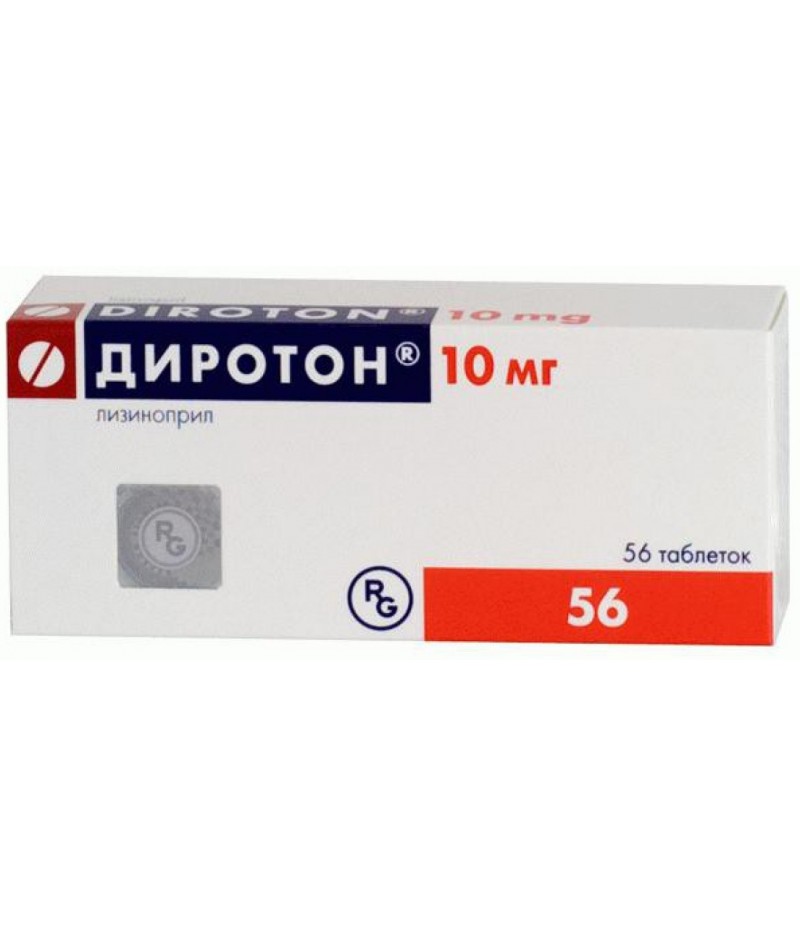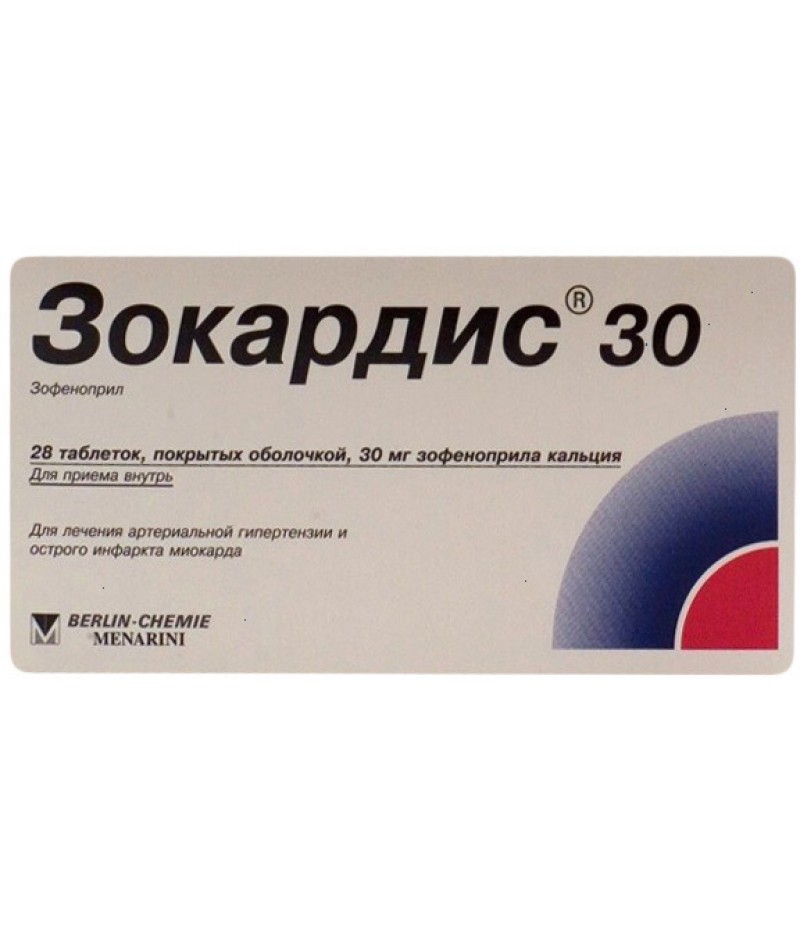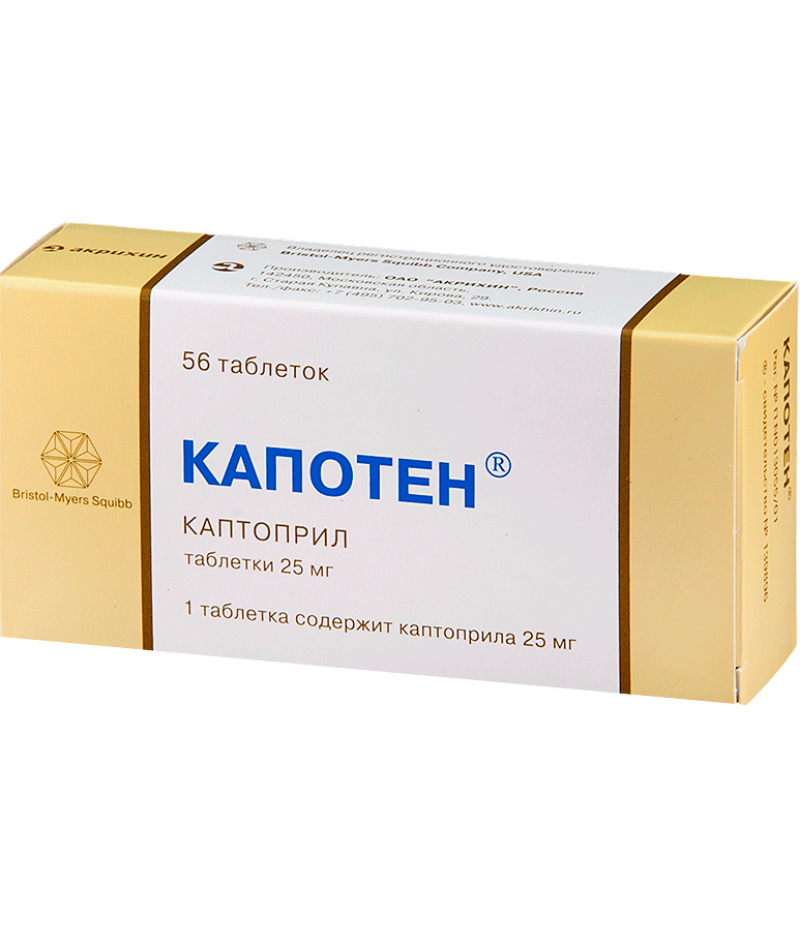Diroton tabs 10mg #56
- $29.50
- 3 or more $26.95
- Availability:In Stock
Instruction for DirotonYou can buy Diroton tablets onlineCompositionOne Diroton tablet may contain 2.5 mg or 5 mg / 10 mg / 20 mg of lisinopril (used as a dihydrate).Magnesium stearate, talc, mannitol, corn starch, calcium dihydra..
Tags: tabs
Instruction for Diroton
You can buy Diroton tablets online
Composition
One Diroton tablet may contain 2.5 mg or 5 mg / 10 mg / 20 mg of lisinopril (used as a dihydrate).
Magnesium stearate, talc, mannitol, corn starch, calcium dihydrate of hydrophosphate are included in the list of auxiliary compounds of the preparation.
Form of issue
Diroton tablets with a dosage of 2.5 mg are sold in aluminum / PVC blisters for 14 tablets, one package usually contains 1 or 2 blisters.
Tablets with a dosage of 5 mg / 10 mg / 20 mg are also sold in aluminum / PVC blisters for 14 tablets, in one package there are usually 1, 2 or 4 blisters.
pharmachologic effect
Hypotensive and peripheral vasodilating.
Pharmacodynamics and pharmacokinetics
Diroton (INN: Lisinopril) is considered an inhibitor of angiotensin converting factor, it can interrupt the chain formed from angiotensin II - in I. Lizinopril reduces the level of the vasoconstrictive effect of the substance - angiotensin II, while the concentration of aldosterone in the bloodstream decreases.
Lizinopril helps reduce the volume of the atrial resistance. The drug Diroton, its use for lowering the pressure, does not affect the heart rate (heart rate) and leads to an increase in the minute volume of blood, as well as renal blood flow. To achieve maximum effect, it takes 6 hours. Later it lasts about 24 hours and can fluctuate depending on the dosage of the drug. Diroton from pressure with prolonged use reduces its effectiveness.
Pharmacokinetics data
The process of absorption is from the digestive tract, then lisinopril, getting into the blood plasma, does not bind to proteins. Usually bioavailability is not more than 25-30%, and the diet does not change the rate of absorption. The drug is withdrawn after 12 hours. Since the active substance is not metabolized, excretion is unchanged with urine. The drug Diroton does not cause a withdrawal syndrome with a sudden discontinuation of therapy.
Indications for the use of Diroton
the drug is effective in chronic heart failure (as a component of combination therapy);
if there is a need for prevention of left ventricular dysfunction, heart failure, and support of stable hemodynamic parameters - Diroton tablets are used - which are effective, including. with acute myocardial infarction;
with diabetic nephropathy (reduces albuminuria);
indications for the use of Diroton tablets also include essential and renovascular arterial hypertension (as monotherapy or combined treatment with other antihypertensive drugs).
Contraindications
a history of idiopathic angioedema, including cases with ACE inhibitors;
Quincke's hereditary edema;
underage persons (≤ 18 years);
pregnant and breastfeeding women;
known hypersensitivity to the active lisinopril or ancillary components, as well as to other ACE inhibitors.
Diroton Pressure Medication has prescription of application with caution
with stenosis of the renal arteries or the aortic aorta;
after kidney transplantation;
patients with renal insufficiency with CC less than 30 ml / min;
with obstructive hypertrophic cardiomyopathy;
at the primary stage of hyperaldosteronism;
with arterial hypotension;
patients with cerebrovascular diseases or cerebral circulatory insufficiency;
severe forms of diabetes mellitus;
with scleroderma, ischemic heart disease, systemic lupus erythematosus;
severe chronic heart failure;
patients with oppressed bone marrow hematopoiesis;
in the hypovolemic state, with hyponatremia;
elderly patients;
individuals on hemodialysis with high-flow dialysis membranes (AN69), since an anaphylactic reaction is possible.
Side effects
These tablets from pressure can cause such unwanted reactions as dizziness and headaches (in about 5-6% of patients), weakness, diarrhea, skin rash, nausea, vomiting, dry cough (3%), orthostatic hypotension, chest pain (in 1-3%).
Other side effects with a incidence of less than 1% can be divided into the systems of organs from which they arise:
CCC: reduced blood pressure, tachycardia, bradycardia, manifestations of heart failure, violation of atrioventricular conduction, possible myocardial infarction.
Digestive system: anorexia, dry mouth, indigestion, impaired taste, development of pancreatitis, hepatitis, jaundice, hyperbilirubinemia, increased activity of hepatic enzymes - transaminases.
Skin covers: urticaria, increased sweating, photosensitivity, alopecia, itchy skin.
CNS: sudden changes in mood, impaired attention, paresthesia, fatigue and drowsiness, confusion, convulsions of limbs and lips, asthenic syndrome.
Respiratory system: apnea, dyspnea, bronchospasm.
The system of hematopoiesis: neutropenia, leukopenia, thrombocytopenia, agranulocytosis, anemia.
Immune system: vasculitis, angioedema, positive reaction (screening) for antinuclear antibodies, increased ESR, eosinophilia.
Genitourinary system: decreased potency, anuria, uremia, oliguria, impaired renal function up to acute renal failure.
Metabolism: increased or decreased content of potassium in the blood, a lower concentration of sodium, magnesium, chlorine, increased concentrations of calcium, uric acid, urea, creatinine, cholesterol, hypertriglyceridemia.
Among others: arthralgia, fever, arthritis, myalgia, exacerbation of gout.
Diroton tablets, instructions for use (Method and dosage)
The medication is taken orally once a day, regardless of the nutrition scheme, best of all - at approximately the same time of day.
With essential hypertension
If no other antihypertensive medication is administered, then the initial daily intake should not exceed 10 mg, the maintenance dose is usually raised to 20 mg. After studying the dynamics of blood pressure, it can be increased to a maximum of 40 mg, given that the full development of the effect is observed in 2-4 weeks. If the patient has insufficient therapeutic effect, then the therapy is supplemented with another antihypertensive drug.
Attention! Before taking Diroton, it is necessary to cancel therapy with diuretic drugs in about 2-3 days, otherwise the initial dose of Diroton should not be more than 5 mg / day. Treatment is carried out under medical supervision in connection with the risk of symptomatic arterial hypotension.
With renovascular hypertension and other conditions caused by increased activity of the RAAS hormonal system
It is recommended to start therapy with a daily dose in the range of 2.5-5 mg / day, preferably in a hospital under enhanced control, including monitoring of blood pressure, kidney function, serum potassium concentration. The maintenance dose is determined on the basis of monitoring the dynamics of blood pressure.
To individuals with renal insufficiency
A dose adjustment is required, which is based on a regular assessment of creatinine clearance. So, with Cl at 30-70 ml / min, treatment starts with 5-10 mg of lisinopril per day, at 10-30 ml / min, 2.5-5 mg / day.
The recommended daily dose of patients on hemodialysis should not exceed 2.5 mg.
With chronic heart failure
The initial daily dose of 2.5 mg can be gradually increased after 3-5 days to a standard maintenance dose of 5 to 20 mg. If previously used diuretics, then their dose is reduced to the maximum possible. Treatment should begin with a study and further be accompanied by blood pressure control, kidney function, potassium and sodium concentrations, which will prevent the development of arterial hypotension, as well as violations of kidney function.
With diabetic nephropathy
The recommended daily dose is 10 mg, can be raised to a maximum of 20 mg. This gives a persistent decrease in diastase. BP up to 75 mm Hg, which should be measured in the patient's position - sitting.
Instructions for use of Diroton for patients who underwent acute myocardial infarction
On the 1st day after the experienced myocardial infarction, the patient is given an initial dose of 5 mg, in II - again 5 mg, for III - 10 mg, continuing treatment with a maintenance daily dose of not more than 10 mg for 6 weeks. If patients have low syst.AD, it is recommended to begin treatment with a lower dose - 2.5 mg.
Overdose
Possible Symptoms
Reduced blood pressure, dry mouth, constipation, drowsiness, anxiety, urinary retention, increased irritability.
Activities undertaken for treatment
the purpose of activated carbon;
gastric lavage;
replenishment of BCC (for example, IV plasma substitution solutions);
symptomatic therapy;
hemodialysis;
control of vital functions.
Interaction
Carrying out therapy simultaneously with potassium-sparing diuretics (eg, Spironolactone, Triamteren, Amyloride) and other potassium-containing drugs increases the likelihood of hyperkalemia.
With sodium aurotomyalatum there is a symptom complex, including nausea, vomiting, flushing of the face and arterial hypotension.
β-adrenoblockers, slow Ca-channel blockers, diuretics and other antihypertensives potentiate hypotensive action.
With NSAIDs, including selective inhibitors of COX-2, estrogens, adrenomimetics, the antihypertensive effect decreases.
With vasodilators, tricyclic antidepressants, barbiturates, phenothiazines, ethanol-containing agents, the hypotensive effect is also potentiated.
With lithium preparations, lithium release slows down, which increases its cardiotoxic and neurotoxic effects.
Antacids and Kolestyramin reduce the rate of absorption from the digestive tract.
Lizinopril can enhance the neurotoxicity of salicylates, weaken the influence of hypoglycemic agents, epinephrine, norepinephrine, antidotal drugs, intensify the effects (including unwanted) of cardiac glycosides, peripheral muscle relaxants, reduce the rate of excretion of quinidine.
Reduces the effect of oral contraceptives.
Methyldopa increases the risk of hemolysis.
Storage conditions
Requires a temperature range of + 15 ° + 30 ° C.
Shelf life - 36 months.
In pregnancy and lactation
Due to the fact that the drug is able to penetrate the placental barrier, there is a risk of fetal (II and III trimester):
hypoplasia of the skull;
marked decrease in blood pressure;
hyperkalemia;
kidney failure;
a fatal outcome is possible - intrauterine death.
Newborns exposed to ACE inhibitors require careful medical supervision in connection with the risk of developing persistent lowering of blood pressure, hyperkalemia, oliguria.
Reviews about Diroton
They take Diroton usually on the recommendation of a cardiologist and after a few weeks they report that they feel well, have unpleasant sensations in the heart area, improve breathing. Reviews of Diroton on the forums are also positive, but many people say that you need a good doctor who will help you choose the right dosage.



